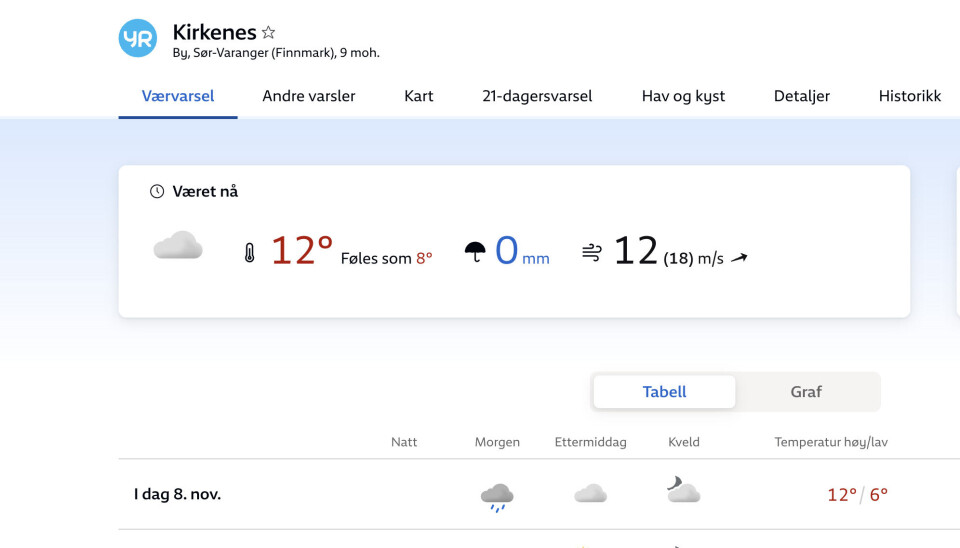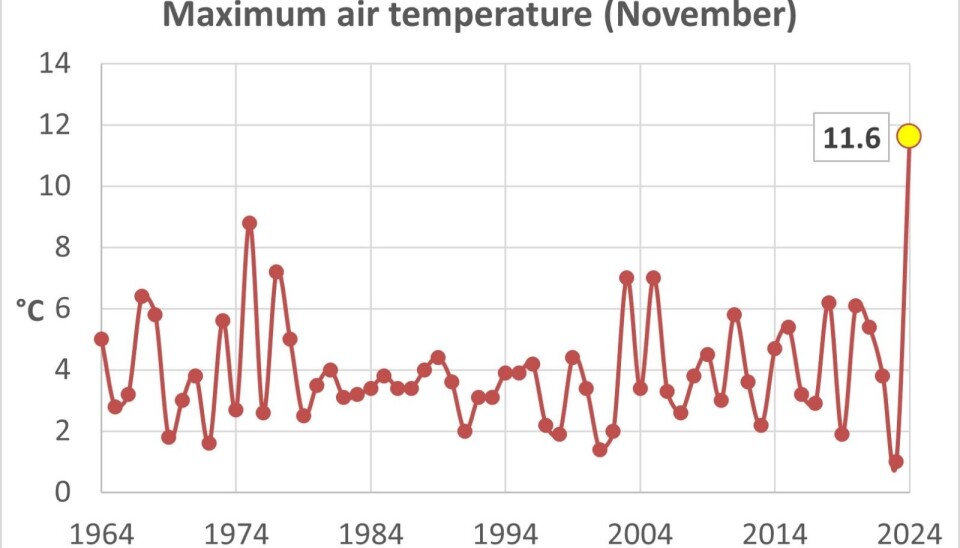Tourists canceling bookings for winter attractions – ‘We expected snow here’
Tourists are canceling bookings for winter attractions; experts are warning of severe storms and the disappearance of species.

11.6°C is the temperature recorded in Kirkenes, Arctic Norway, on 8 November 2024. It’s 2.8 degrees warmer than the previous highest temperature ever recorded in Kirkenes in November.

“We are surprised. We expected snow here,” a tourist from Singapore, Sap, told the Barents Observer in Kirkenes on Friday morning.
Sap and her friend Yee said they had come to Kirkenes to see the aurora borealis and also booked a snowmobile tour:

“We are disappointed that the snowmobile tour has been canceled. But the tourism company has promised to replace it with an extra lunch,” said Yee, “It’s global warming – it’s happening everywhere. We just have to accept it,” she added.
The reindeer sleigh ride Yee and Sap had booked the day before in Finnish Lapland was canceled as well.
The warm winds on 8 November was also recorded in other places inside the European part of the Arctic Circle:

Tromsø – 11.4°C
Alta – 14.7°C
Hammerfest – 11.8°C
The Russian Arctic city of Murmansk has reached an unprecedented 10 degrees Celsius. The last time it was almost this warm was in 1975, when the temperature in Russia’s Arctic capital rose to 9.6 degrees.
“The many new high-temperature records are a direct effect of climate change,” physical oceanographer Arild Sundfjord of the Norwegian Polar Institute told the Barents Observer. He warned that while some might be happy that the cold summers here in the north are getting warmer, for the planet as a whole the consequences are catastrophic:
Rising sea levels, more violent storms, rainfall and people being forced to move away from the area that has become too warm,” Arild Sundfjord says,
adding that if sea ice in the northern Barents Sea is completely lost one day, it will cause a significant decline in the population of regional species such as polar bears.
The Norwegian Meteorological Institute highlights that 2024 is on track to be the first year globally with an average above the 1.5 degree limit set by the Paris Agreement.
Earlier this year, Kirkenes experienced an unprecedently warm summer.
Located in Kirkenes, Norway, just a few kilometres from the borders to Russia and Finland, the Barents Observer is dedicated to cross-border journalism in Scandinavia, Russia and the wider Arctic.
As a non-profit stock company that is fully owned by its reporters, its editorial decisions are free of regional, national or private-sector influence. It has been a partner to ABJ and its predecessors since 2016.